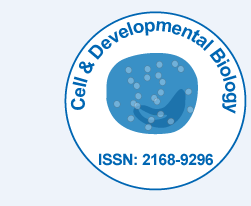
Cell & Developmental Biology
Open Access
ISSN: 2168-9296

ISSN: 2168-9296
Perspective - (2023)Volume 12, Issue 3
In the scientific discovery, experiments play a crucial role in advancing our understanding of the natural world. Among the various experimental techniques, cell controlled experiments have emerged as a groundbreaking approach that holds immense potential for unraveling the complexities of cellular processes. This article aims to shed light on the significance of cell controlled experiments and highlight their contribution to scientific breakthroughs.
Cell controlled experiments involve manipulating and observing cells in a controlled environment, enabling scientists to investigate the intricacies of cellular behavior. By altering specific variables and monitoring the resulting changes, researchers can discern cause-and-effect relationships and gain valuable insights into biological phenomena. This approach empowers scientists to explore the inner workings of cells and decipher their complex mechanisms.
Precision and reproducibility
One of the greatest strengths of cell controlled experiments lies in their precision and reproducibility. Scientists can precisely control the conditions in which cells are cultured, ensuring consistency and accuracy in their observations. This level of control allows researchers to isolate specific variables and discern their individual effects on cellular processes. The ability to replicate experiments enhances the reliability of findings and fosters confidence in the scientific community. Cell controlled experiments have proven to be invaluable in the study of diseases, offering a deeper understanding of their underlying mechanisms. Researchers can use these experiments to mimic disease conditions within cells and examine how they respond to different treatments or interventions. This approach provides a controlled platform for testing potential therapeutic strategies, ultimately leading to the development of more effective treatments. By understanding the cellular processes involved in disease progression, scientists can identify novel targets for drug development and personalized medicine.
Advancing biotechnology
The field of biotechnology has greatly benefited from cell controlled experiments. These experiments facilitate the engineering of cells for various applications, such as the production of therapeutic proteins or the creation of genetically modified organisms. By manipulating cellular processes, scientists can enhance the production of desired substances, optimize metabolic pathways, and even design cells with new functionalities. Cell controlled experiments offer a valuable tool for driving innovation in biotechnology and expanding the frontiers of what is possible.
Ethical considerations
While cell controlled experiments hold immense potential, they also raise ethical concerns. Manipulating cells in a controlled environment blurs the line between understanding and altering life processes. As the technology advances, it becomes imperative to ensure responsible and ethical use of this powerful tool. Researchers must adhere to stringent ethical guidelines, considering the welfare of living organisms and the potential consequences of their experiments. A robust framework is necessary to govern the use of cell controlled experiments, ensuring that their benefits are realized while upholding ethical standards.
Collaboration and knowledge sharing
Cell controlled experiments thrive in an environment of collaboration and knowledge sharing. The complexity of cellular processes requires multidisciplinary approaches, with researchers from various fields combining their expertise to tackle scientific challenges. By openly sharing methodologies, protocols, and findings, scientists can build upon each other's work, leading to rapid advancements in the field. The collective efforts of the scientific community are essential for maximizing the potential of cell controlled experiments and translating their discoveries into tangible benefits for society.
Cell controlled experiments have revolutionized our understanding of cellular processes and have the potential to shape the future of medicine and biotechnology. By offering precision, reproducibility, and the ability to unravel disease mechanisms, these experiments have become an indispensable tool in scientific discovery. However, their power must be tempered with ethical considerations, ensuring responsible use and avoiding unintended consequences. Through collaboration and knowledge sharing, scientists can harness the full potential of cell controlled experiments, paving the way for remarkable breakthroughs and improving the human condition.
Citation: Gao K (2023) Precision and Reproducibility of Cell Controlled Experiments. Cell Dev Biol. 12:287.
Received: 08-May-2023, Manuscript No. CDB-23-24921; Editor assigned: 10-May-2023, Pre QC No. CDB-23-24921(PQ); Reviewed: 24-May-2023, QC No. CDB-23-24921; Revised: 31-May-2023, Manuscript No. CDB-23-24921(R); Published: 07-Jun-2023 , DOI: 10.35248/2168-9296.23.12.287
Copyright: © 2023 Gao K. This is an open-access article distributed under the terms of the Creative Commons Attribution License,which permits unrestricted use, distribution and reproduction in any medium, provided the original author and source are credited.